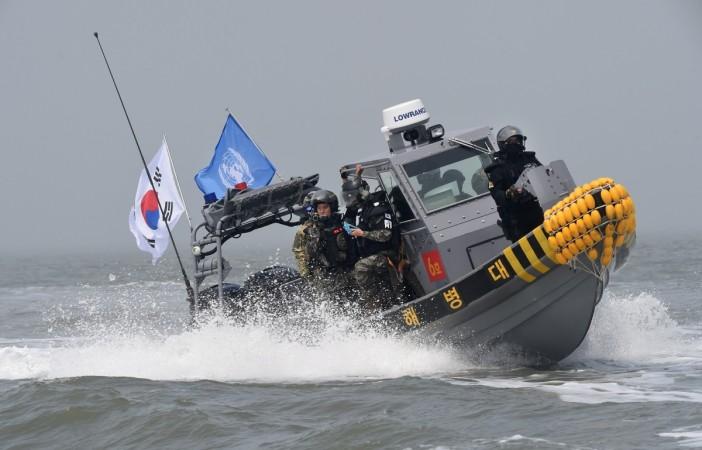
For the first time since the Korean Armistice Agreement was signed, South Korea and the United Nations Command (UNC) on Friday sent military troops in neutral waters of the Han River to chase away 10 illegal Chinese fishing boats. Incidents of illegal boats cropping in the area have reportedly increased in the last two years.
Since the agreement was signed, no Korean or other ships that are not officially registered with the military armistice commissions of either South or North Korea are allowed to ply in the area.
"The troops carried out their first crackdown operation in the estuary area earlier in the day," a military official was quoted as saying by Yonhap news agency.
The action was taken after informing North Korea, who is a signatory to the armistice agreement, a military official was quoted as saying by the South China Morning Post.
Seoul had recently formed a military police team to combat the increasing number of incursions into the military buffer zone by fishers. While such incidents were confined to two or three in number in 2014, there have been 520 such incidents in the first five months of 2016, the military official said.
"Despite our government's multifaceted diplomatic efforts, illegal fishing by Chinese boats has continued to the extent (that South Korea) have come to realise its diplomatic measures have reached their limits," the official said. "Under this view, South Korea decided to launch its troops in cooperation with the UNC."
He also added that further action will be taken in the matter in accordance with the armistice agreement with North Korea.
The relationship between South and North Korea has been contentious with North Korea threatening to blow up important landmarks of South Korea, and insulting the president. North Korea is also facing multiple sanctions from the United Nations, European Union and the U.S. over its active nuclear programme.
Meanwhile, South Korea has disputes with China over territorial claims in the East China Sea's Exclusive Economic Zone.

















